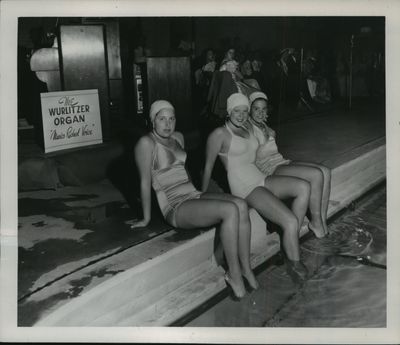Spokane Valley pastor’s social media apology for ‘one-piece swimsuit only’ rule goes viral

A Spokane Valley youth pastor’s social media post went viral after he apologized for setting a rule at the summer camps he supervised that girls could only wear one-piece bathing suits.
Bryce Brewer penned his apology on Facebook mostly for his friends and family, he said. The next morning, he saw it had been shared 200 times.
“I was like, that’s weird,” he said. “And then it just took off from there.”
As of Friday afternoon, Brewer’s post garnered 31,000 comments, 51,000 likes and 83,000 shares as it circulated on Facebook. Many on the post expressed their support, but it was not without detractors.
“What I look at is, I’ve seen so many responses that say, thank you, I was hurt and sexualized, and this apology has started the first path to healing,” Brewer said. “But I was very surprised that an apology could have garnered this much hate; that was weird to me.”
Brewer worked in a ministry role on-and-off for 20 years as a youth pastor, camp counselor and camp speaker at more than 20 Christian camps spanning multiple denominations.
At these summer camps, he decided in order to promote modesty and safety, he would mandate girls could only wear one-piece bathing suits .
“But to impose a rule that one-piece bathing suits is the answer to that, that’s so overly simple,” he said.
His mind changed recently while shopping with his fiancée and daughter. They went from store to store, and Brewer could tell his daughter didn’t like or feel comfortable in any of the one-piece suits.
“I think there’s a spot for modesty, but in wandering through swimsuit sections, there is a real sense that maybe two-pieces are more fit for having a great and comfortable experience at summer camp,” Brewer said.
In his post, Brewer wrote: “But why are stomachs overtly sexual? Why is a little cleavage sinful? Why are women meant to feel they are responsible for men’s actual sin of lust?”
According to data from the National Sexual Violence Resource Center, 81% of women will experience sexual harassment. One in three sexual assault survivors were assaulted when they were between 11 and 17, according to the resource center.
A report on the sexualization of young girls from the American Psychological Association showed adolescent girls are more likely to be depicted in a sexual way than young boys, and at an earlier age. Research from the report also found early sexualization of a young girl resulted in a higher chance of them later developing an eating disorder, low self-esteem, or depression or depressed mood.
“We have so much wisdom coming from our female pastors and female students, so really, if a rule like this about young girls is to be passed, it needs to come from a female perspective,” Brewer said.